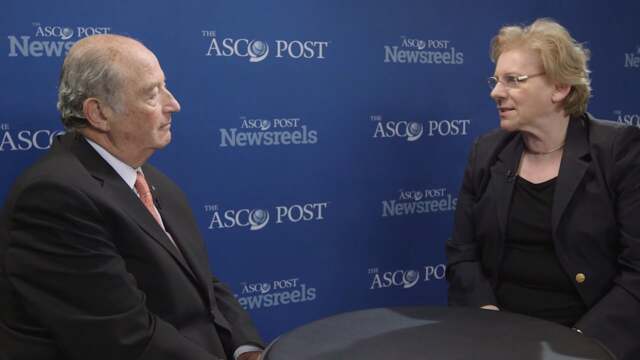James R. Perry, MD, on Glioblastoma: Study Results on Treating Elderly Patients
2016 ASCO Annual Meeting
James R. Perry, MD, of Sunnybrook Health Sciences Centre, discusses findings of a phase III trial of short-course radiotherapy with or without concomitant and adjuvant temozolomide in older patients with this tumor (Abstract LBA2).
Eric Roeland, MD, of the University of California, San Diego, and Timothy E. Quill, MD, of the University of Rochester Medical Center, discuss the debate on whether physician-assisted death should be a legally available option at the end of life when neither palliative nor hospice care is satisfactory.
Eduardo L. Cazap, MD, PhD, of the Latinamerican & Caribbean Society of Medical Oncology, and Mary Gospodarowicz, MD, of the Princess Margaret Hospital, discuss oncology from an international point of view.
Maria Clemence Schwaederle, PharmD, of the University of California, San Diego, discusses an analysis of 13,203 patients in phase I clinical trials, which showed that a personalized strategy led to improved response rate and progression-free survival (Abstract 11520).
Arjun Vasant Balar, MD, of the Perlmutter Cancer Center at NYU Langone Medical Center, discusses findings on atezolizumab as first-line therapy in cisplatin-ineligible locally advanced/metastatic disease (Abstract LBA4500).
Antonio Palumbo, MD, of the University of Torino, discusses in Italian this phase III study of daratumumab, bortezomib, and dexamethasone versus bortezomib and dexamethasone in patients with relapsed or refractory multiple myeloma (Abstract LBA4).

To see the English language version of this video, please
click here.





